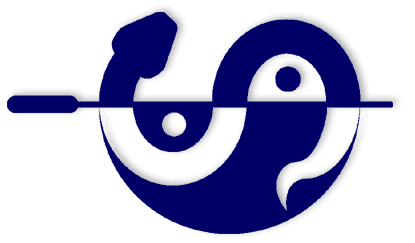 Apollo Wellness Center |
Ask For Dr. Claude Williams Call (773) 539-7400 |
 |
|
| Acupuncture - Chiropractor - Chicago |
| Home | Services | Frequently Asked Questions | Links | Contact Us |

Have Questions?
Fill out this form.
Alternate Medicine - Chinese Medicine - Chicago |
Traditional Chinese Medicine has its origin in ancient Taoist philosophy which views a person as an energy system in which body and mind are unified, each influencing and balancing the other. Unlike allopathic medicine which attempts to isolate and separate a disease from a person, Chinese Medicine emphasizes a holistic approach that treats the whole person. Many people have found Traditional Chinese methods of healing to be excellent tools for maintaining optimum health and preventing illness.
How Can Chinese Herbs Help?
After diagnosing a pattern of disharmony and administering acupuncture treatments, a doctor of TCM often writes an herbal formula from over a thousand common herbal formulas or from more effective traditional family formulas. Herbal medicine has a long history in the Orient. The first Chinese material, the Shen-Nung Herbal Classic, was begun during the Stone Age and completed in the later part of the 5th century B.C., from which some important formulas originated.
How a Traditional Chinese Doctor Prescribes Herbal Formulas
In this herbal classic, herbs are categorized into three groups. The first group is called "food herbs" which are eaten as part of one's diet for general fortification, prevention and maintenance. The other two groups are called "medicinal herbs" which are dispensed to each patient as an individual formula based on one's constitution, environment and medical condition.
Medicinal herbal therapy works in concert with acupuncture by providing the nourishing support for the energetic "re-programming" and "re-balancing" efforts of acupuncture.
Herb Formulas are developed to use each herb to its greatest advantage. By combining different herbs together, we will not only adjust and increase the treatment results, but also reduce or release the side-effects from the other herbs. It also makes it possible to treat complicated diseases at the same time. That's why few Traditional Chinese Medicine doctors prescribe only a single herb to treat patients.
Formulas are based upon treatment principle, and treatment principle is dependent upon the cause. Because of the different cause of diseases, the herbal formula varies.
A formula is made from typically 10-15 herbs together with appropriate dosage depending on the patient's condition and the treatment principle. There is a saying, "Prescribe medicine just like a commander in the army." Usually, a formula includes four parts: emperor, prime minister, minister and envoy. Emperor is the herb(s) which plays the most important role in the formula. This herb works directly with the etiology and pathology. Prime minister is the herb which helps to enhance the result of the emperor herb. Minister is the herb which treats the secondary symptoms and minimize emperor and prime minister's side effect. Envoy is the herb which can be used to adjust the formula's taste and moderate the properties of other herbs.
In a clinic setting, it is not always appropriate to use the same formula to treat one condition. The doctor usually changes the formula to follow with the change of the patient's condition, general health and age. First of all, the number of the herbs in the formula can be changed. If the patient's main complaint doesn't change, but the secondary complaint changes, the doctor will add some herbs to treat the new complaint, and take out the herbs that were used to treat the primary complaint, which is nonexistent now. In addition, the dosage of each herb in the formula can be changed to follow the changes of the disease. Increase or decrease in one herb's dosage may change the treatment principle.
In thousands of years of experience in Chinese medicine, generation by generation, there are hundreds of excellent classic formulas to be used to treat different diseases. They have proven to be very effective in treating all kinds of conditions. Often we prescribe a formula based on the classic formula, and add or deduct some herbs, adjusting the dosage depending on the patient's condition.
Top Search Engine Marketing
Powered by SearchGuia